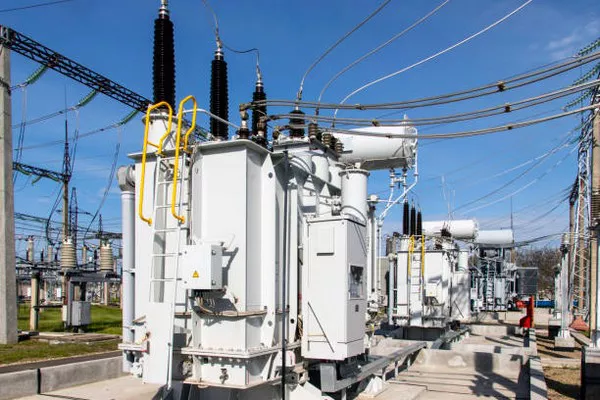Transformers are critical components of electrical power systems, facilitating the efficient transmission and distribution of electricity. One key feature commonly associated with transformers is the use of oil within their design. This article delves into the reasons behind why transformers utilize oil, exploring its benefits, functions, and overall significance in ensuring the reliability and longevity of these essential electrical devices.
Introduction to Transformers
Transformers are fundamental devices used in electrical engineering to transfer electrical energy between circuits through electromagnetic induction. They operate on the principle of mutual induction, where a changing current in one coil (the primary winding) induces a voltage in another coil (the secondary winding) within the same magnetic field. This process allows for voltage levels to be stepped up for efficient transmission over long distances or stepped down for safe distribution to end-users.
The Role of Oil in Transformers
Oil is a crucial component integrated into transformers to serve multiple essential functions:
Cooling: Transformers generate heat during operation due to core losses and copper losses. The oil functions as a coolant, transferring heat away from the core and windings, thereby maintaining the transformer’s temperature within safe operating limits.
Insulation: Oil acts as an excellent insulating medium, enhancing the dielectric strength of the transformer. It helps in preventing electrical breakdown by providing insulation between the windings and the transformer tank.
Arc Quenching: In the event of a fault or electrical breakdown within the transformer, oil plays a vital role in extinguishing electrical arcs and preventing further damage to the transformer components.
Types of Transformer Oil
The oil used in transformers is specifically chosen and processed to meet stringent performance requirements. Common types of transformer oil include:
Mineral Oil: Traditional transformer oil derived from crude oil, known for its excellent cooling and insulating properties.
Silicone Oil: Used in certain specialized applications due to its wide temperature range and fire-resistant properties.
Bio-based Oil: Environmentally friendly alternatives derived from renewable sources, offering biodegradability and reduced environmental impact.
Cooling Function of Transformer Oil
Heat generated within a transformer can lead to significant efficiency losses and damage to internal components if not managed effectively. Transformer oil circulates within the transformer, absorbing heat from the windings and core. The heated oil then flows to a radiator or heat exchanger where it dissipates heat into the surrounding environment. This process helps in maintaining the transformer’s temperature at a safe level, ensuring optimal performance and longevity.
Insulating Properties of Transformer Oil
Electrical insulation is paramount in transformers to prevent short circuits and breakdowns. Transformer oil possesses high dielectric strength, allowing it to withstand the high voltages present within the transformer without conducting electricity. This property is critical for ensuring the safe and reliable operation of transformers under varying load conditions and environmental factors.
Arc Quenching and Fire Safety
In the unfortunate event of a fault or electrical breakdown within the transformer, such as an internal short circuit, electrical arcs can form. Transformer oil plays a crucial role in rapidly extinguishing these arcs by depriving them of oxygen and dissipating the heat generated. This prevents the escalation of faults into catastrophic failures, thereby enhancing overall safety and reliability.
Properties of Ideal Transformer Oil
Effective transformer oils possess specific properties that are essential for optimal transformer performance:
High Dielectric Strength: Ensures effective electrical insulation.
High Thermal Conductivity: Facilitates efficient heat dissipation.
Low Viscosity: Enables easy circulation within the transformer.
Chemical Stability: Maintains performance over extended periods without degradation.
Oil-Filled Transformer Design
The design of oil-filled transformers is optimized to leverage the benefits of transformer oil effectively:
Tank: Houses the core, windings, and oil, providing structural support and containment.
Cooling Radiators: Facilitate heat dissipation from the circulating oil.
Buchholz Relay: Monitors oil flow and detects internal faults like overheating or gas accumulation.
Maintenance and Monitoring
Proper maintenance and monitoring of transformer oil are essential for ensuring optimal transformer performance and longevity:
Oil Sampling: Regular sampling and analysis of transformer oil to detect contaminants, degradation, or other issues.
Oil Filtration: Periodic filtration or replacement of oil to maintain its properties and effectiveness.
Gas Monitoring: Monitoring for gas build-up within the oil, which can indicate developing faults or issues.
Environmental Considerations
While transformer oil offers critical benefits for transformer performance, there are environmental concerns associated with its use:
Environmental Impact: Traditional mineral oils can pose environmental risks if leaked or improperly disposed of.
Regulatory Compliance: Increasing emphasis on using bio-based or less hazardous transformer oils to mitigate environmental impact.
Conclusion
In conclusion, the use of oil in transformers is essential for ensuring their efficient and safe operation within electrical power systems. Transformer oil provides crucial functions such as cooling, insulation, and arc quenching, thereby enhancing the reliability and longevity of transformers. As technology advances and environmental awareness grows, there is a continued focus on developing alternative transformer oils that offer similar performance benefits while minimizing environmental impact. Transformers remain indispensable components of modern electrical infrastructure, and the role of transformer oil continues to be pivotal in maintaining the reliability and efficiency of power systems worldwide.

